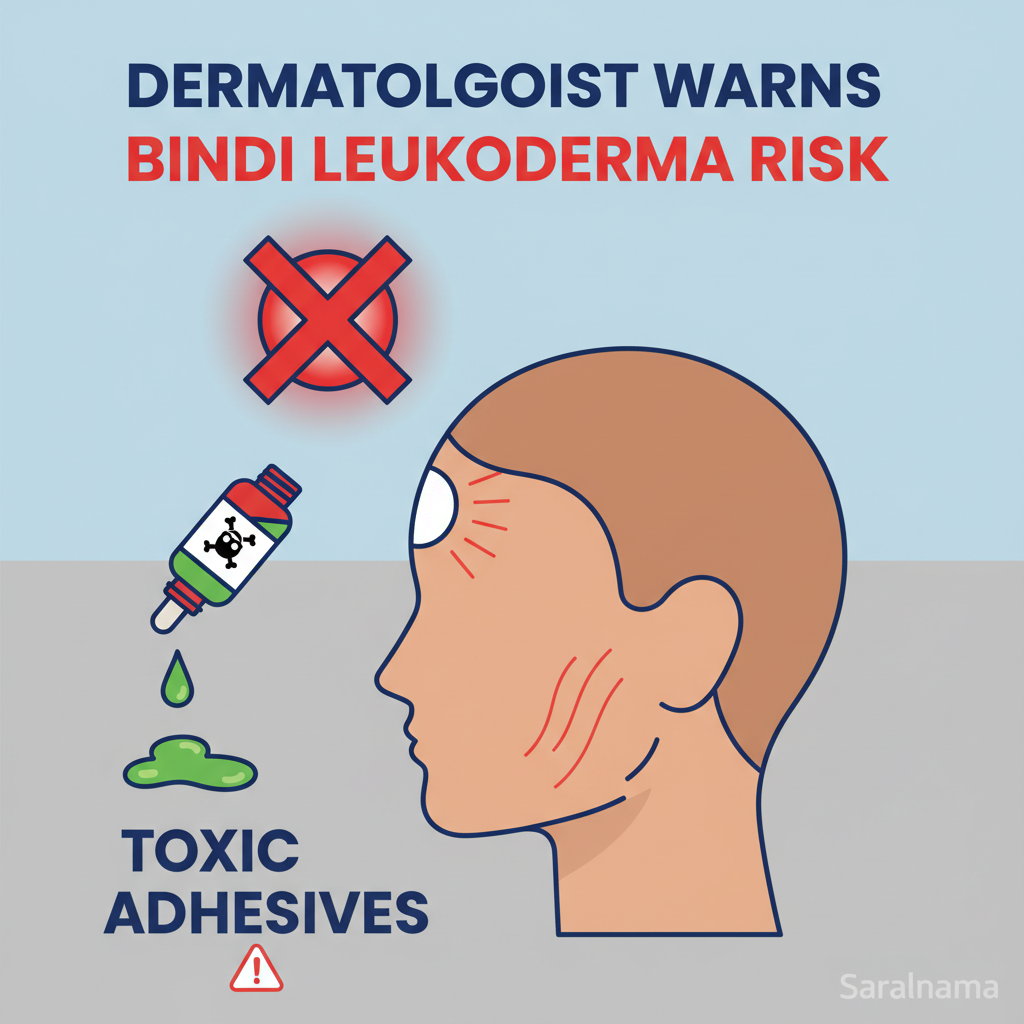 Saralnama
SaralnamaArtificial bindis can cause skin damage, warns Delhi dermatologist Dr Geetika Srivastava. Adhesives in designer bindis contain toxic p-tertiary butyl phenol (PTBP), leading to 'bindi leukoderma' – loss of skin pigment. The risk is higher in India's hot, humid climate. Dr Srivastava advises using traditional kumkum or homemade bindis instead. She suggests limiting self-adhesive bindis to occasional use. People with sensitive skin should be extra cautious. Organic kumkum remains the safest option. Homemade kumkum from turmeric is a good alternative. However, ingredients like lime and ghee may cause issues for some skin types. A patch test is recommended before use. (Updated 2 Oct 2025, 23:09 IST; source: link)
Key Points
- Artificial bindis can cause skin damage, warns Delhi dermatologist Dr Geetika Srivastava
- Adhesives in designer bindis contain toxic p-tertiary butyl phenol (PTBP), leading to 'bindi leukoderma' – loss of skin pigment
- The risk is higher in India's hot, humid climate
